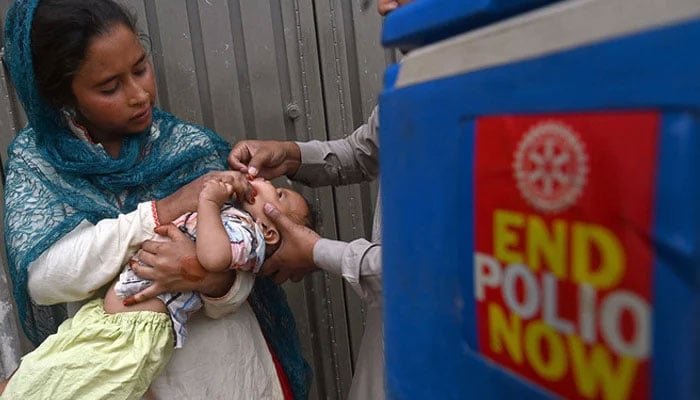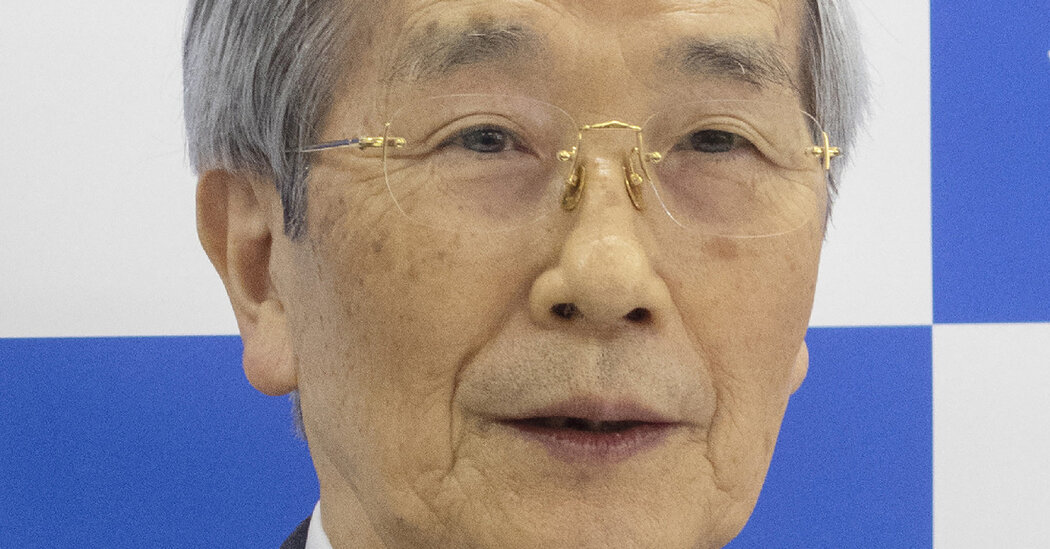
- WPV1 paralyses 2.5-year old child in Sindh’s Shikarpur district.
- Previously, three poliovirus cases were reported in Balochistan.
- Anwar-ul-Haq given charge of country’s anti-polio programme.
ISLAMABAD: The Pakistan’s polio program on Saturday announced another child being paralysed by the wild poliovirus type 1 (WPV1) in Shikarpur district of Sindh, bringing the total number of cases in the country this year to four.
The regional reference laboratory for polio eradication at the National Institute of Health (NIH) in Islamabad notified that WPV1 was detected from stool samples collected from a 2.5-year-old child from Birkhan Union Council (UC) of Shikarpur.
On the other hand, Polio Eradication Programme’s national coordinator Dr Shahzad Baig stepped down from his post due to “personal reasons”.
Meanwhile, health authorities assigned the work of the coordinator of the National Emergency Operation Center (NEOC) for polio eradication to the Ministry of National Health Services, Regulations, and Coordination (NHS, R&C) Joint Secretary Captain (retd) Anwar-ul-Haq, in addition to his own duties with immediate effect until further notice.
Providing details about the fourth polio case, the program officials stated that the child had onset paralysis on May 11. Genetic sequencing of the virus isolated from his samples revealed that it is genetically linked to the imported YB3A cluster.
This genetic cluster disappeared from Pakistan in mid-2021 but remained in circulation in Afghanistan. It was reintroduced in Pakistan following cross-border transmission last year.
It is worth mentioning here that it is the first polio case from Sindh this year as earlier three cases have been reported from the Dera Bugti, Chaman and Killa Abdullah areas of Balochistan.
Similarly, poliovirus has so far been found in 153 environmental samples in 39 districts across Pakistan.
Coordinator to the Prime Minister on National Health Services Dr Malik Mukhtar Bharat has expressed sorrow over another Pakistani child being affected by a preventable disease.
He emphasised the government’s regular efforts to bring vaccines to people’s doorsteps and highlighted the deployment of teams from the National and Provincial Polio Emergency Operations Centres to conduct a full case investigation.
It is pertinent to know that a polio vaccination campaign is being launched in 66 districts from June 3 to vaccinate children and build their immunity against virus.
Poliovirus particularly affects malnourished children
Experts highlighted that poliovirus particularly affects malnourished children with weak immunity due to under-vaccination or lack of vaccination for polio and other childhood diseases.
The Pakistan Polio Programme announced that more than 16.5 million children under the age of five will be vaccinated in a crucial polio campaign beginning on June 3 in 66 districts, ahead of the high-travel season of Eid-ul-Adha.
The five-day campaign will be implemented in 36 districts in full and partially in 30 districts, including Islamabad, 20 districts of Balochistan, 23 districts of Khyber Pakhtunkhwa, 16 districts of Sindh, and six districts of Punjab.
Dr Bharat urged parents and caregivers to ensure that their children are vaccinated during the campaign, emphasising the high risk to children as poliovirus continues to be detected in sewage samples.
He further underlined the government’s resolve to eradicate polio from the country and called for the critical support of parents and communities in achieving this goal.





